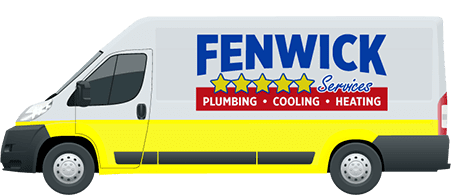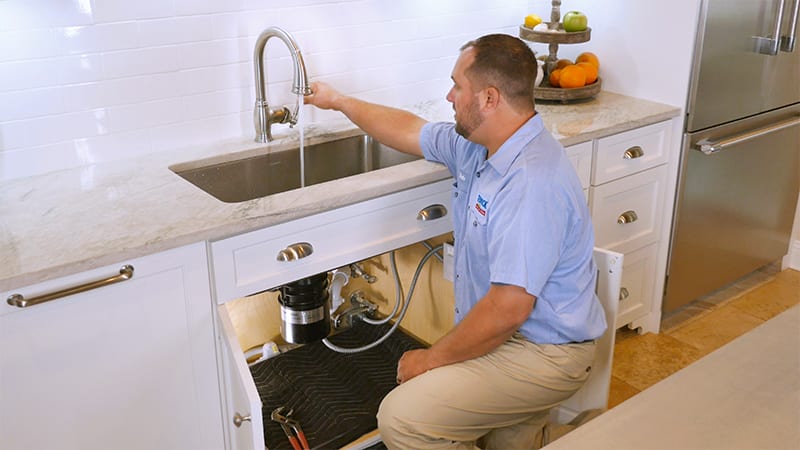
Are you sick of asking yourself, “Why does my drain keep clogging?” As plumbing experts, Fenwick Home Services knows what not to put down the drain.
Every drain in your home is vulnerable to clogs. Keep reading to discover everything you should know about clogged drains.
Table of Contents
Signs of a Clogged Drain
You can determine you have a clogged drain by looking for these signs:
- Improper draining: The most obvious sign your drain needs clearing is when the water backs up or drains more slowly than normal.
- Gurgling sounds: A bubbling sound occurs when air, trapped by a clog in your pipes, escapes back into your home. It’s usually an earlier sign of a clog.
- Foul smells: If you smell sewage coming from your drain, it means the exhaust from your waste can’t fully exit your home.
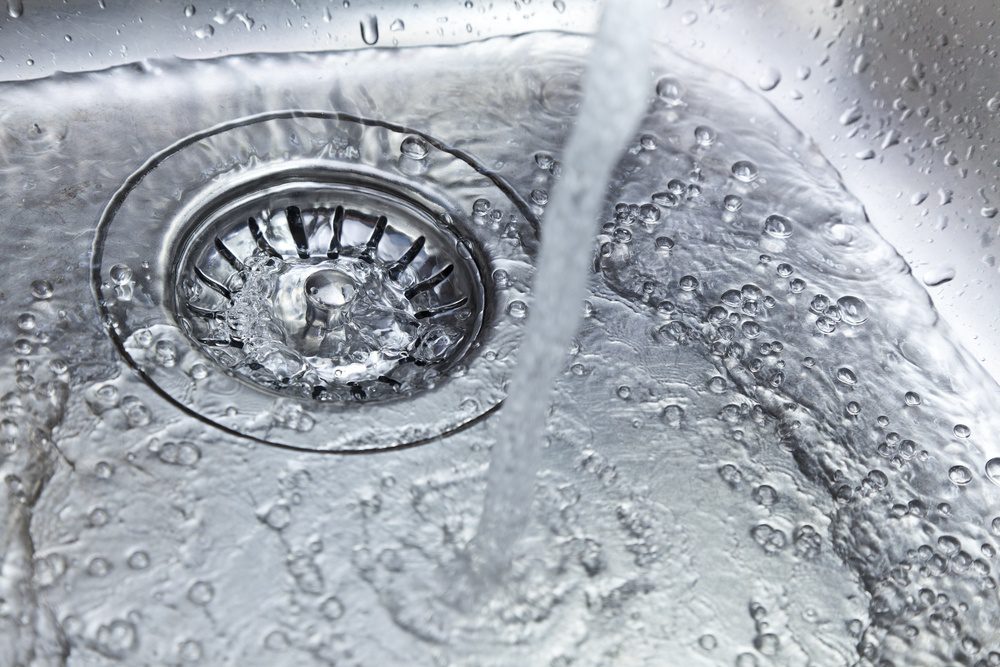
What Not To Pour Down the Drain: 10 Things
If you’re wondering what clogs drains, these 10 things are the most common culprits:
-
“Flushable” Products
Substances frequently marketed as flushable are one of the most common causes of clogged drains because many people don’t understand what flushable means. Flushable wipes and kitty litter can fit down your toilet, but consistently sending these products down the drain is almost certain to cause a severe clog.
-
Coffee Grounds
Coffee grounds are high on the list of what not to pour down the drain because many people drink coffee. Over time, the grounds form a solid mass in your pipes and collect other substances you drain.
-
Eggshells
What clogs drains? Many people don’t realize eggshells pose a real threat to your pipes. Their sharp edges often lodge onto other substances.
-
Grease
Grease and oils are other often overlooked substances when thinking about what not to put down the drain. While they may seem harmless, they can quickly change from a viscous liquid to a spongy solid. Like plaque on your arteries, they narrow the edges of your pipes, restricting the flow of water and causing clogs and leaks.
-
Paper Products
Paper products are one of the major causes of clogged drains because people think they’re easily dissolvable. You should never send paper towels or any product other than toilet paper down the toilet, they don’t dissolve as well as you’d think.
-
Chemicals
Chemicals are high on the list of things not to put down the drain, but not because they cause clogs. Toxic chemicals enter the water supply or seep into the surrounding environment. Corrosive chemicals, such as cleaning products or drain cleaners, degrade your pipes, eventually causing leaks.
-
Medications
Much like chemicals, sending medications down the drain pollutes the drinking water.
-
Feminine Hygiene Products
Feminine hygiene products work by absorbing liquid and expanding. They do the same thing to your pipes and cause severe blockages.
-
Paint
Similar to chemicals, the problem with paint is both its corrosive nature and the danger it poses to the surrounding water table.
-
Expanding and Fibrous Byproducts
Fibrous or expanding food scraps, such as rice, pasta, and celery, seem harmless at first, but they easily get lodged in your pipes. Hair causes the same problems and easily entangles with other substances. Use a drain screen in your shower to help prevent hair clogs.
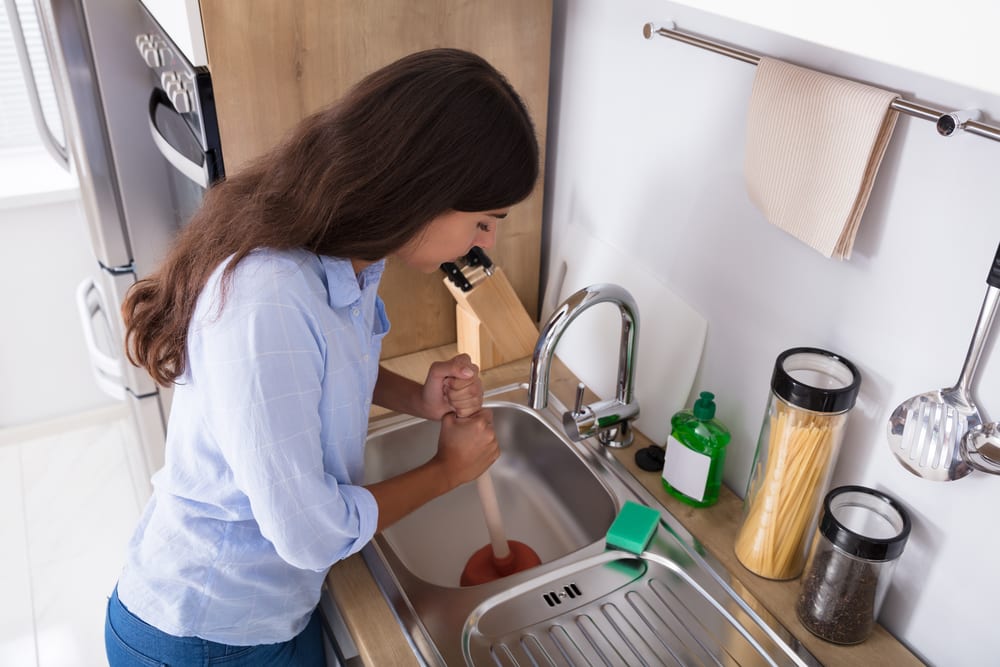
Drain Clearing Solutions You Can Try
You can attempt clearing a drain yourself by using the following methods:
- Boiling water can melt parts of the clog, making it easier to wash down.
- Salt and baking soda, when accompanied by boiling water, create a safe chemical reaction in the pipes that can help dissolve the clog.
- Vinegar and baking soda have the same effect as salt and baking soda.
- Plungers are essential for clearing toilet clogs.
- Drain snakes can grind down or latch onto clogs and easily remove them.
Avoid Using Chemicals
No matter how desperate you are to remove a clog, you should never use chemical drain cleaners. They’ll only create bigger problems in the long term, leading to costly repairs, and many don’t even work to successfully clear stubborn blockages.
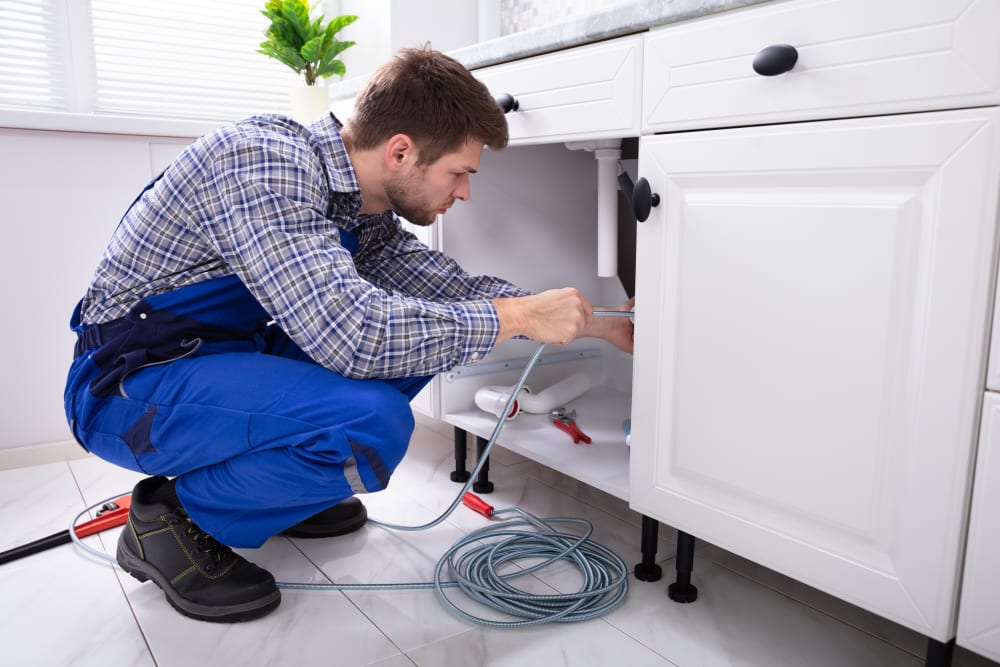
When To Call a Professional Plumber
Call a plumber to help clear a clog if any of the following conditions apply:
- DIY fixes don’t work: If you’ve tried unsuccessfully to clear the blockage yourself, calling a plumber is the next step.
- Frequent clogs: If you find yourself frequently clearing clogs, you likely have a bigger blockage deeper in your pipes. Only a certified plumber can clear it.
- Deep clogs: If the clog is close to your main sewer line, you’ll need special tools only a plumber has.
- Pipe leaks: If you notice a leaky pipe, shut off your water supply at the main line and call for help immediately.
Now that you know what not to put down the drain, you can keep them clean for longer. When you eventually need help, Fenwick Home Services provides quick and reliable drain clearing services.
To book an appointment, call 904-217-5694.

